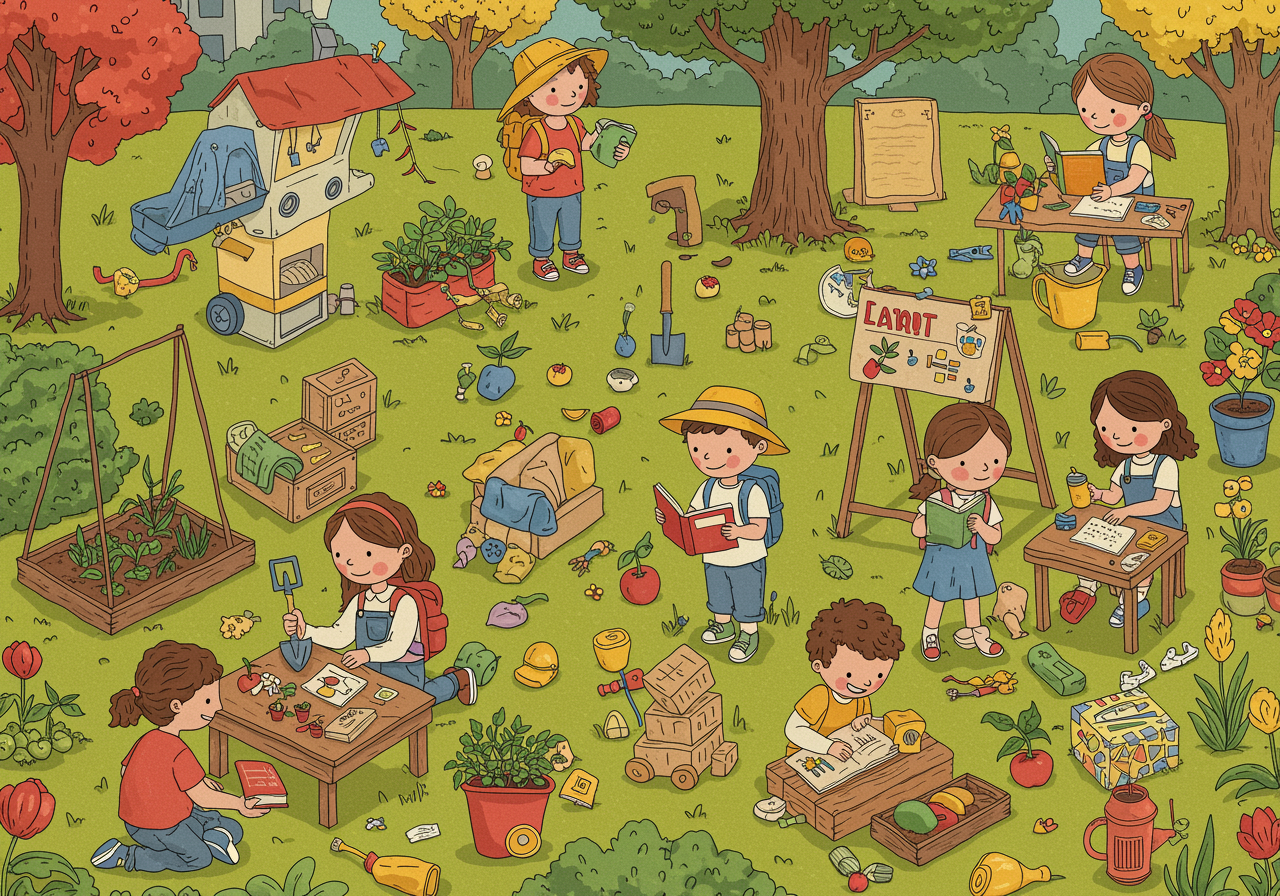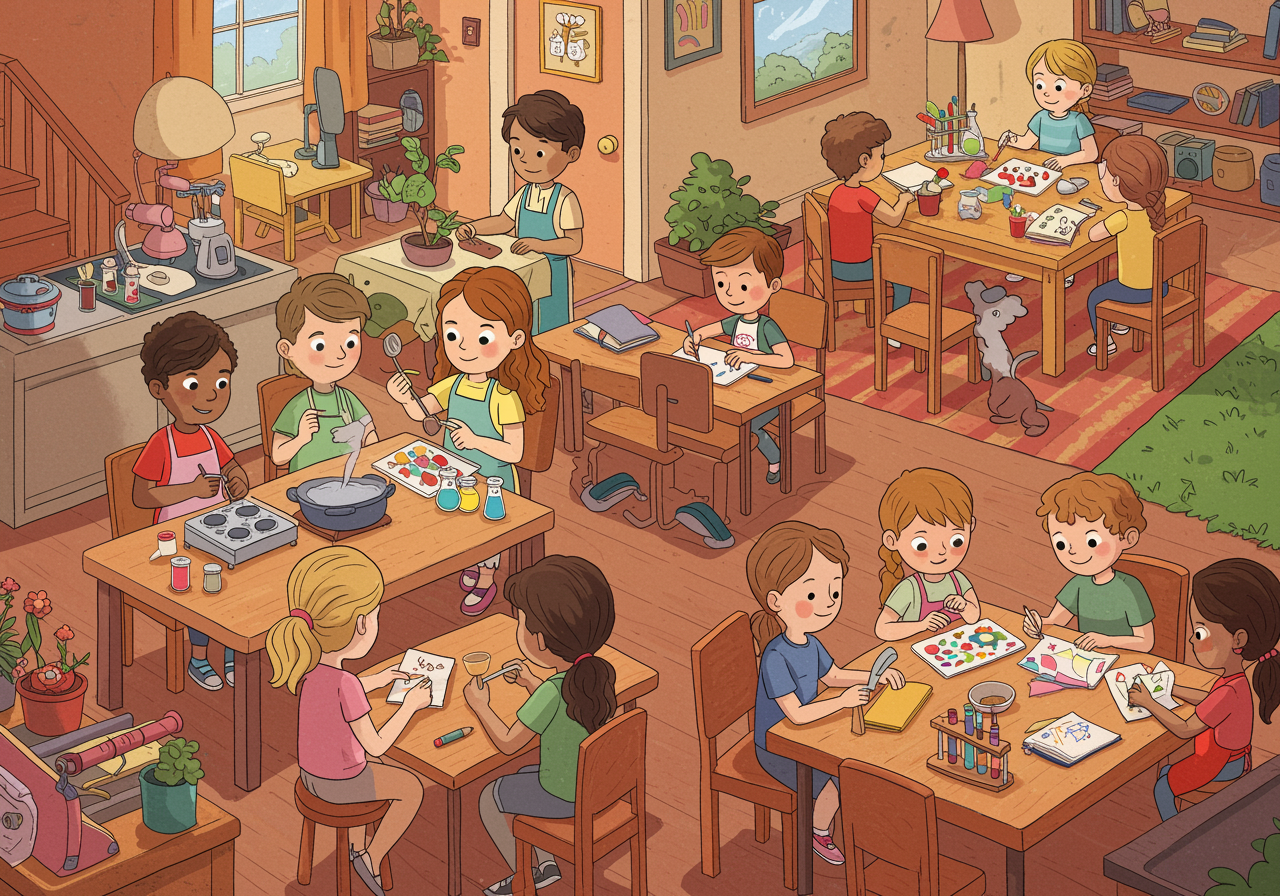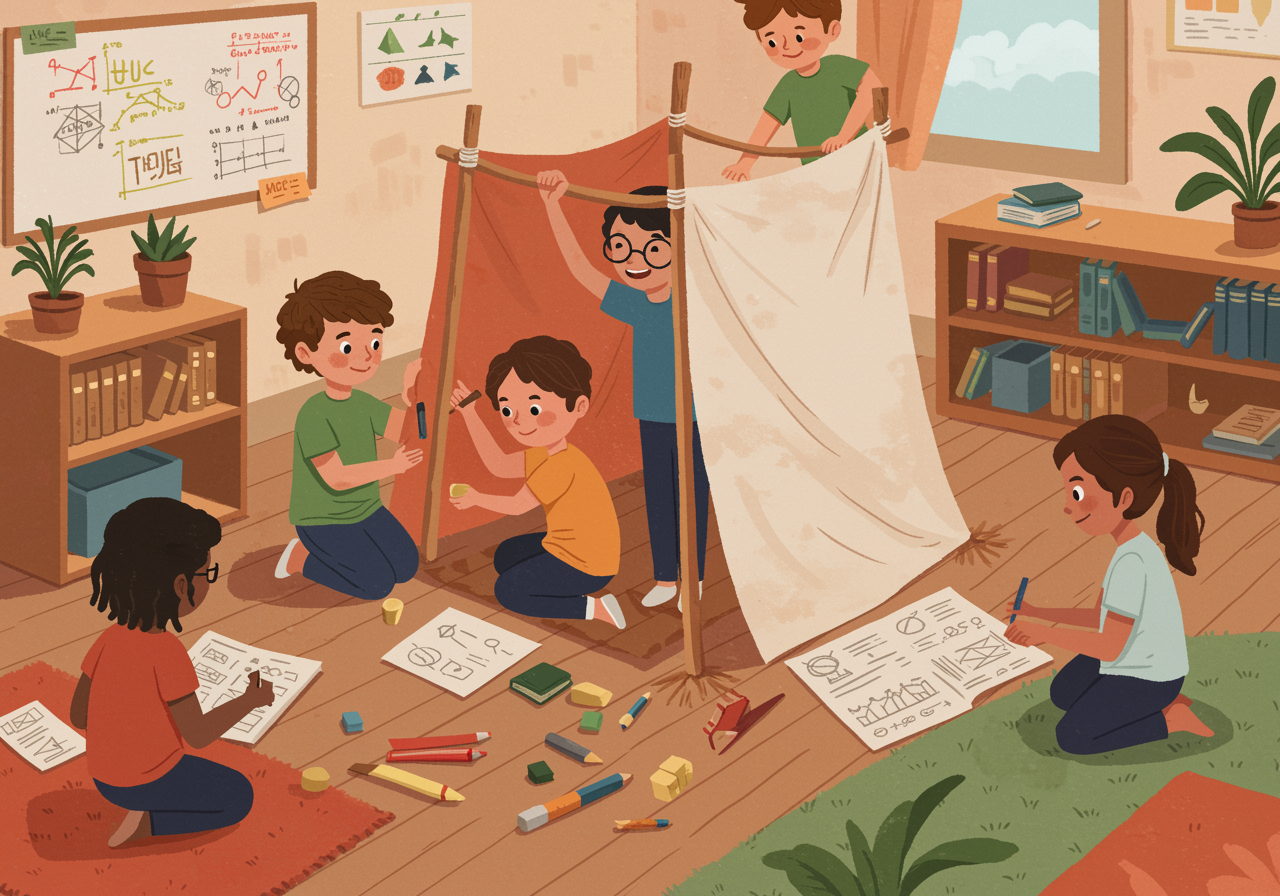When School Walls Disappear: The Future of Friendship and Learning
Exploring how kids might connect and discover in a world beyond traditional classrooms
What happens when learning breaks free from school buildings and friendships form in entirely new ways?
Overview
Imagine if the school building down the street suddenly wasn't there anymore – where would kids learn and make friends? This might sound scary, but it's actually happening in some places around the world, and it's creating some pretty amazing new ways for young people to connect and discover. From learning pods in living rooms to friendship groups that form around shared interests rather than age groups, the future of education and friendship might look totally different than what we know today. Talking about this helps families think creatively about what really matters in learning and friendship.

Understand in 30 Seconds
Get up to speed quickly
- Schools = Social Hubs: Traditional schools aren't just about math and reading – they're where most kids meet their best friends and learn to work with others.
- Community Learning Emerges: When schools close, neighborhoods often create their own learning spaces in libraries, community centers, and even people's homes.
- Interest-Based Friendships: Without grade levels, kids might make friends based on what they love doing rather than just their age.
- Families Team Up: Parents often work together to create 'learning pods' where small groups of kids learn and play together regularly.
Real Life Scenario
Situations you can relate to
Think about your neighborhood like a giant puzzle where each house is a piece. Right now, most kids leave their puzzle piece every morning to go to the same big building called school. But what if that big building disappeared? Suddenly, each puzzle piece might become special in its own way. Maybe the house with the big backyard becomes the outdoor science lab. The family with the artist mom might host painting workshops. The neighbor who loves cooking could teach kids about chemistry through baking. Instead of 30 kids in one classroom, you might have 5-8 kids learning together in smaller, cozier groups. Have you ever noticed how you act differently with your family friends versus your school friends? How do you think your friendships might change if you spent more time learning in small groups around your neighborhood?

Role Play
Spark a conversation with “what if” scenarios
What if your neighborhood became one big learning campus?
- Role play: Map out your neighborhood and assign each house or building a 'learning specialty' – like the park for PE, the library for research, someone's garage for building projects. Walk around and imagine the possibilities!
What if you could learn with kids of any age who share your interests?
- Role play: Create a pretend 'learning pod' where one person is 10, another is 14, and someone else is 16, all learning about space together. How would each person contribute something different?
What if making friends happened through shared projects instead of sitting in the same classroom?
- Role play: Pick a fun project (like building a fort or creating a video) and imagine meeting your new best friend while working on it together. Act out how that friendship might start differently.
FAQs
Frequently asked questions people want to know
Would kids still learn the same subjects without traditional schools?
Yes, but they might learn them in more hands-on, real-world ways. Math through cooking and building, science through gardening and experiments, history through community stories and field trips.
How would kids make friends if they're not all in the same building?
Friendships might form through shared interests, neighborhood activities, learning pods, sports teams, community groups, or online connections with local kids.
Would this type of learning prepare kids for college and jobs?
Many experts think it could prepare them even better by teaching real-world skills, creativity, self-direction, and the ability to work with people of all ages.
Examples in the Wild
See how this works day to day
- During COVID-19, thousands of families created 'pandemic pods' where small groups of kids learned together in homes, proving alternative education can work. (Wall Street Journal Education Coverage 2020-2021)
- In Finland, some schools have eliminated grade levels entirely, letting kids of different ages learn together based on interest and ability. (Finnish National Education Agency)
- Homeschool co-ops across America bring families together for group learning, field trips, and social activities, creating tight-knit communities. (National Center for Education Statistics)
- Microschools – tiny schools with 10-15 students – are growing rapidly, offering personalized learning in community spaces. (Education Week Microschool Research 2023)
In Summary
What you should know before you start
- Traditional schools serve as both learning centers and social hubs where most childhood friendships begin
- Alternative education often creates smaller, more personalized learning environments that can strengthen community bonds
- Friendships might form around shared interests and projects rather than just age and proximity
- Families and communities often step up to create collaborative learning experiences when traditional options aren't available
Pro-tip for Parents
You got this!
If your child seems worried about this topic, focus on the exciting possibilities rather than what might be lost. Ask them what their ideal learning environment would look like and what kinds of friends they'd want to make. Help them see that learning and friendship are about curiosity, kindness, and shared experiences – not about buildings or systems. Remember, this conversation is about imagination and critical thinking, not predicting a scary future.

Keep an Eye Out For
Find these examples in everyday life
- News stories about homeschool co-ops, learning pods, or microschools in your area
- Community centers offering educational programs or maker spaces for kids
- Families in your neighborhood who might be interested in collaborative learning activities
- Local museums, libraries, or businesses offering hands-on learning experiences
Explore Beyond
Look up these related research topics
- How different cultures around the world approach education and childhood friendships
- The history of schools – how kids learned before formal education systems existed
- How technology might change the way future generations learn and connect with each other